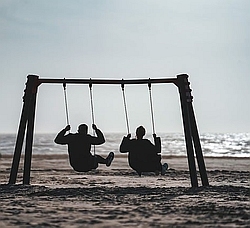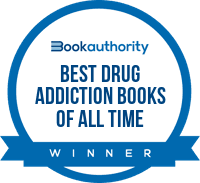While some people are more prone to developing addictions than others, anyone can fall prey to internet addiction. Modern life means that YouTube binging, social media addiction, internet rabbit holes, and incessant scrolling can snare anyone.
Internet algorithms are designed to get you addicted. These formulas are fashioned to create dopamine spikes, which get you hooked. Stopping requires a combination of awareness, discipline, re-evaluating your priorities and, potentially, sorting out deeper issues.
Stop Internet Escapism
If you have pre-existing issues, like depression, loneliness, anxiety, stress, low self-esteem, or addictive tendencies, you may be using the internet to escape. The issue with escapism is that the problem never gets solved and you spend your life running from it.
Seek support, solutions, self-help, or therapy instead of trying to find distraction, validation, attention, or other hollow, temporary solutions on the internet. Freedom lies on the other side of facing up to your pain.
Preserve Your Offline Time
 Human beings are not designed to be “online” 24/7; we need rest, time to ourselves, and space to breathe. Why do your best ideas emerge when you’re in the shower? It’s because your brain is not engaged, and has the time and space to problem-solve and think creatively.
Human beings are not designed to be “online” 24/7; we need rest, time to ourselves, and space to breathe. Why do your best ideas emerge when you’re in the shower? It’s because your brain is not engaged, and has the time and space to problem-solve and think creatively.
Treat downtime as a necessity. Your smartphone is the worst offender for disturbing your peace. Switch off unnecessary notifications. Put your phone on silent when you’re resting or sleeping. Keep it out of reach when you’re trying to concentrate, socialise, or do other things that are important to you.
If you’re seriously addicted, you may require a complete digital detox before being able to set reasonable boundaries and limits. If this is the case, install blocking software, swap your smartphone for a normal phone, or give your devices to a trusted person. Do it for at least a week to help reset your brain.
Prioritise Happiness, Not Pleasure
Modern culture is skewed towards entertainment, consumerism, instant gratification, and overstimulation. This “pursuit of pleasure” culture is great for people trying to sell us things. It’s not so great for our long-term health and happiness.
Human beings need supportive relationships, creativity, meaning, and challenges that lead to growth. Little of this can be found by staring at a screen.
Think of your happiest memories. They are likely to involve meaningful connection with people, times you overcame challenges and achieved things, fun outings, or travelling. They are unlikely to be the six hours you spent going down a YouTube rabbit hole or looking at memes.
When you first unplug, you may feel bored and irritable without your instant pleasure “fix”. So start pursuing happiness. Follow passions. Explore the world. Get close to nature. Make real-life connections. Create. Live in reality, not virtual reality.
Be Intentional About Internet Use
Use the internet mindfully and with intention. The web is a wonderful resource that means you can talk to your friend in another country, learn things, and carry out important tasks remotely.
But most of our time is spent engaging with content that is unsatisfying, meaningless, and in the case of doomscrolling and heated X debates, downright depressing.
Make a list of:
- 3 important goals or things you want to achieve
- 3 things that make you happy (not amused or mildly entertained, but deeply happy)
- 3 things you genuinely need online
Before watching a video, reading an article, googling something, or engaging on social media, ask yourself if it fits into the above categories. If not, stop, and go and do something that meets your "3s".
Likely the only things you may genuinely need the internet for on a regular basis are navigation, banking, checking emails, and potentially, work. Research to help you meet your goals or pursue a good, happy life count as valid reasons to surf the web. After all, you would never have found this article without the internet.
But try not to rely on it for every little thing. It's a nicer experience to ask friends or family for recipes, recommendations, and information than it is to find them online. It's more personal, and you never know when actually talking to someone might lead to an interesting story or conversation.
Beating Internet Addiction Is Rewarding
Overcoming any addiction is hard at first. But the short-term pain of a digital detox can lead to a much more rewarding and fulfilling life. If you need support, get it. Online help is one of the good things the internet has brought. Check out r/nosurf for inspiration and tips.
by Beth Burgess, Therapist and award-winning author of The Recovery Formula, The Happy Addict, and Instant Wisdom.





